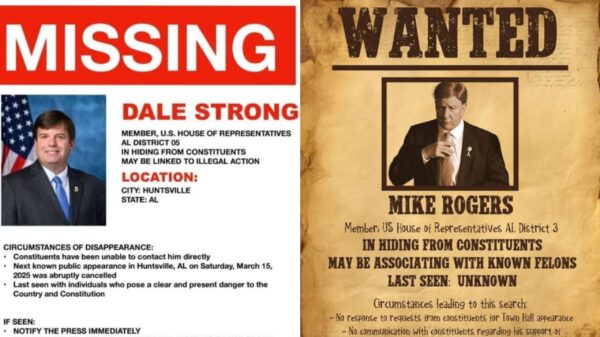By Brandon Moseley
Alabama Political Reporter
On Thursday, August 27, 2015, the National Labor Relations Board’s Democratic majority in a 3 to 2 decision redefined what an employee was in a stunning new joint-employer standard that according to the Wall Street Journal, “Radically rewrites US labor law and upends thousands of business relationships. The majority asserts that throwing out three decades of legal precedent is necessary “to encourage the practice and procedure of collective bargaining.” Labor unions are celebrating a decision sure to harm diverse industries in every state.”
On Friday, August 28, Congressman Bradley Byrne (R-Mobile) commented on the controversial ruling by the National Labor Relations Board’s (NLRB) decision redefining the definition of an “employer.”

Congressman Byrne is a member of the House Education and the Workforce Committee and is a labor attorney.
Earlier this week, Congressman Byrne hosted an Education and the Workforce Committee field hearing on this very topic in Mobile. During this hearing, Rep. Byrne said that witnesses described how a redefinition of “employer” could ruin their opportunity to be a small business owner.
Under the partisan Browning-Ferris Industries decision, the NLRB ruled that companies can be held liable for any labor violations by their contractors. According to The Hill, this decision “is a sharp departure from previous decisions that stated companies were only responsible for employees who were under their direct control.”
The rule means that if for example a tech company contracts out its janitorial services the company could be potentially sued if the janitorial service failed to pay overtime or a maid alleges she was sexually harassed on the job.
Los Angeles attorney Anthony Oncidi told Baron’s: “The real objective for trial lawyers is to bring in another set of deep pockets for the phase of the case in which they attempt to prove the amount of punitive damages that should be awarded. They would much rather have a punitive damages award based on the income and profitability of the franchisor rather than just that of the franchisee. The new rule emanates from the board’s watershed Browning-Ferris decision on Thursday in which a 3-2 majority held that waste recyclery Browning-Ferris was a joint-employer of its subcontractor Leadpoint’s workers.”
Numerous small businessmen own franchises of national chains: McDonald’s, Subway, Burger King, Days Inn, etc. are just a few of the thousands of examples. Last year NLRB General Counsel Richard Griffin directed that McDonald ’s be charged as a joint-employer in dozens of unfair labor practice complaints against franchises. Under the new rule, the company is liable for what it’s franchisee might do as regards to labor law even though they have no direct control over the situation.
The Wall Street Journal wrote that, “The board’s Democratic majority laments that employers are turning to subcontractors and temp agencies to skirt collective-bargaining.”
They argue that the rule could potentially cover any American who employs a worker through a landscaping, catering, plumbing or housekeeping service.
There is bipartisan support for rolling back the new regulations, but it is unlikely that there is enough support to override a likely Presidential veto.
Congressman Bradley Byrne represents Alabama’s First Congressional District.
(Original reporting and analysis by the ‘Wall Street Journal’ and ‘Barron’s’ contributed to this report)


















































